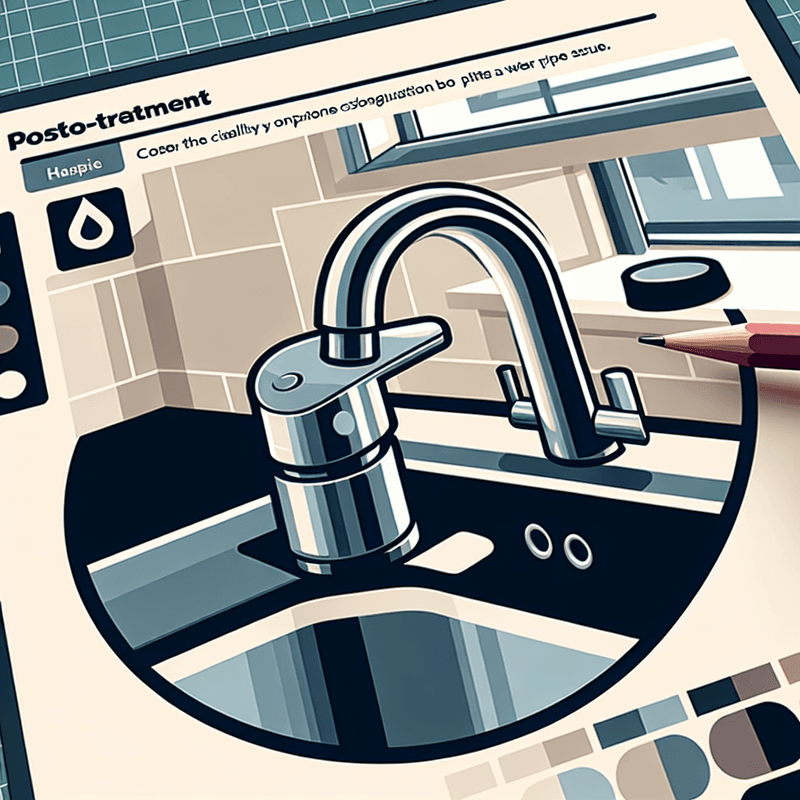Picture this: you've finished washing up after a hearty meal, and you pull the plug on the kitchen sink, expecting the water to swirl gracefully down the drain. Instead, it hesitates, pooling stubbornly before sluggishly edging its way down. Or perhaps it's your bathroom sink, clogged with toothpaste and soap after the morning rush, taking its sweet time to clear. Slow draining sinks are a common annoyance that many people face, often signalling underlying issues in your home's plumbing system.
Understanding the Culprit Behind Slow Drains
Before diving into solutions, it's crucial to understand what typically causes a sink to drain slowly. In most cases, the issue stems from a blockage in the pipeline. Over time, debris such as food particles, grease, hair, and soap can build up, gradually narrowing the pipe's diameter and impeding water flow.
Spotting the Signs Early
The first sign of a blockage is water draining slower than usual. You might also notice unpleasant odours emanating from the drain, caused by decomposing organic matter stuck in the pipes. If left unchecked, the problem can escalate, leading to completely blocked pipes and even potential overflow and water damage.
Home Remedies: A First Line of Defence
There are several methods you can try at home to tackle a slow draining sink before calling in the professionals:
1. Boiling Water: Sometimes, simply pouring boiling water down the drain can clear away grease and soap build-up.
2. Baking Soda and Vinegar: Pour half a cup of baking soda followed by half a cup of white vinegar down the drain. Cover the drain with a plug and let it sit for an hour, then flush with hot water.
3. Plunger: A plunger can be effective, especially if the blockage isn’t too deep. Make sure to cover the overflow hole in your sink with a damp cloth while you plunge to create a strong vacuum.
When to Use Chemical Cleaners
While over-the-counter chemical drain cleaners can seem like a quick fix, they should be used sparingly. These chemicals can be harsh on your plumbing, potentially corroding pipes if used excessively. Always use them according to the instructions and as a last resort before professional intervention.
The Importance of Pipe Maintenance
Preventative maintenance can be invaluable in keeping your sink draining smoothly. Regularly cleaning your sink stoppers, avoiding dumping grease down the kitchen sink, and using a drain guard to catch hair in the bathroom can all help prevent blockages.
The Role of Pipe Venting Issues
Sometimes, slow drains aren't just caused by blockages but by venting issues. If the vent pipes (which remove sewer gases and allow air into the plumbing system) are blocked or improperly installed, it can affect your sink's draining capability. This scenario often requires professional assessment.
When to Call a Professional
If home remedies fail to resolve the slow draining, it might be time to call in a drainage expert. This is particularly advisable if multiple drains in your home are affected, as this can indicate more significant plumbing system issues. Professionals have the tools and expertise to diagnose and remedy problems without risking further damage to your plumbing.
Long-term Prevention Strategies
To keep your drains clear in the long term, consider these habits and home adjustments:
- Regularly clean your drains using the baking soda and vinegar method mentioned earlier.
- Avoid disposing of oil, coffee grounds, and other common clogging agents down the sink.
- Schedule an annual professional drain cleaning service to maintain optimal pipe health.
Investigating Deeper Drainage Issues
Occasionally, slow drains could point to more severe issues, such as tree root infiltration in sewer lines or broken pipes underground. These problems require professional diagnosis and are not suitable for DIY remedies.
Conclusion
A slow draining sink is more than just a minor inconvenience; it's often a symptom of broader plumbing health issues. By recognising early signs, utilising home remedies judiciously, and knowing when to call in the experts, you can maintain a healthy drainage system. Remember, the key to plumbing health is prevention—regular maintenance can save you from bigger headaches down the line. As a practical action, why not try the baking soda and vinegar method today and see if it helps clear that sluggish drain?





